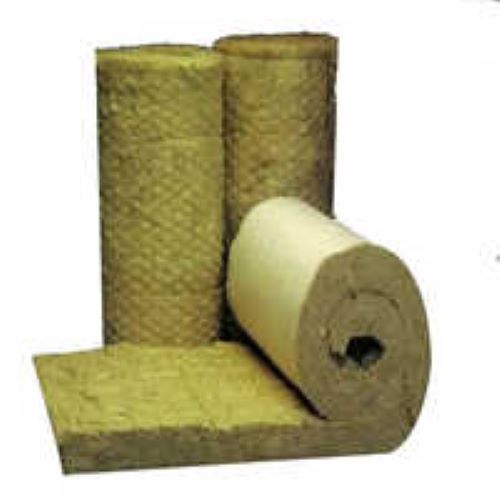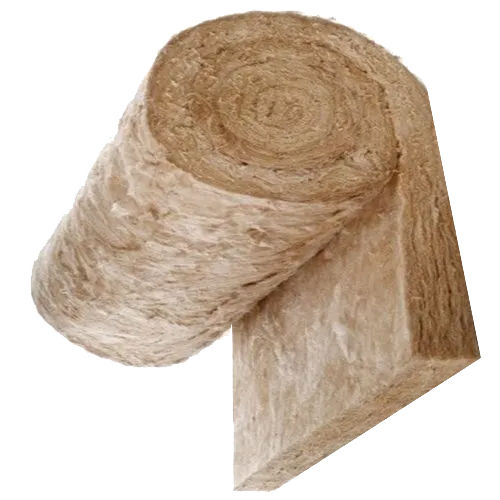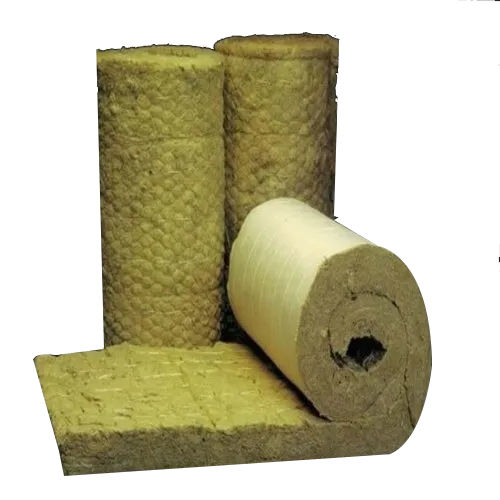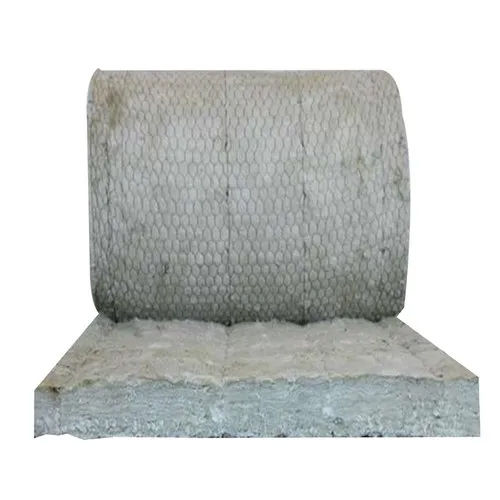LRB Mattress
Price 145 INR/ Square Meter
LRB Mattress Specification
- Length
- 1000 mm
- Feature
- Fire Resistant, Heat Insulation, Sound Proof
- Hardness
- Soft to Medium
- Use
- Insulation of pipes, ducts and vessels
- Material
- Rockwool
- Width
- Flexible - As per requirement
- Mattress Type
- Thermal Insulation
- Size
- As Per Requirement
- Weight
- Light weight
- Thickness
- 25-100 mm
- Style
- Plain
- Color
- Yellow
- Technics
- Hot Insulation
- Acoustic Performance
- Excellent Sound Absorption
- Shape
- Mattress Roll
- Density
- 100-150 kg/m3
- Water Resistance
- Good
- Surface Finish
- Unfaced/Aluminium Foil/Glass Cloth
- Packing Type
- HDPE/Poly Bag
- Installation
- Easy to Cut and Install
- Eco-Friendly
- Yes
- Moisture Absorption
- Less than 1% by volume
- Service Temperature
- Up to 750°C
About LRB Mattress
Rockwool slab, also known as mineral wool slab or stone wool slab, is a type of insulation material made from molten rock (typically basalt or diabase) spun into fibers and compressed into dense slabs or boards. Rockwool slabs are commonly used for thermal and acoustic insulation in various construction and industrial applications. Here are some key features and considerations related to Rockwool slabs:
1. Thermal Insulation
- Rockwool slabs have excellent thermal insulation properties, helping to reduce heat transfer and maintain comfortable indoor temperatures. They are commonly used to insulate walls, roofs, floors, and ceilings in buildings.
2. Acoustic Insulation
- In addition to thermal insulation, Rockwool slabs provide effective acoustic insulation by absorbing sound waves and reducing noise transmission between rooms. They are used in soundproofing applications to create quieter and more comfortable indoor environments.
3. Fire Resistance
- Rockwool slabs are non-combustible and have a high melting point, making them highly resistant to fire. They can act as a fire barrier, helping to prevent the spread of flames and protect the structural integrity of buildings.
4. Moisture Resistance
- Rockwool is resistant to moisture and does not absorb water, making it suitable for use in humid or damp environments. It will not promote mold or mildew growth and maintains its insulating properties even when exposed to moisture.
5. Density and Thickness
- Rockwool slabs are available in different densities and thicknesses to meet specific insulation requirements. Common thicknesses range from a few centimeters to several inches, depending on the application and desired level of insulation.
6. Easy Installation
- Rockwool slabs are easy to handle and install, as they can be cut to size using a utility knife or saw. They can be friction-fitted between studs, joists, or rafters, or installed with mechanical fasteners or adhesive. Proper installation techniques ensure maximum insulation performance.
7. Environmental Considerations
- Rockwool is a sustainable and eco-friendly insulation material, as it is made from natural and abundant rock resources. It is also recyclable and can be reused or repurposed at the end of its service life.
8. Code Compliance
- Rockwool slabs typically meet or exceed building code requirements for thermal and fire performance. When specifying and installing Rockwool insulation, its essential to comply with local building codes and regulations.
9. Versatility
- Rockwool slabs are versatile insulation materials suitable for a wide range of applications, including residential, commercial, and industrial buildings. They can be used in new construction or retrofit projects to improve energy efficiency and indoor comfort.
10. Longevity and Durability
- Rockwool slabs are durable and long-lasting, with a service life that can exceed the lifespan of many building structures. They maintain their insulating properties over time and are resistant to compression, settling, and degradation.
Overall, Rockwool slabs offer a combination of thermal performance, fire resistance, acoustic properties, and durability, making them a popular choice for insulation in various construction projects. When selecting and installing Rockwool insulation, consider factors such as thickness, density, installation method, and environmental impact to ensure optimal performance and compliance with project requirements.
Superior Thermal and Acoustic Protection
LRB Mattress excels at providing both thermal insulation and outstanding sound absorption. Its robust rockwool composition enables it to withstand service temperatures up to 750C, making it an ideal solution for insulating pipes, ducts, and industrial vessels. The mattress is also engineered to significantly reduce noise transmission, boosting workplace comfort and energy efficiency.
Versatile Application and Easy Installation
Available in a flexible roll with thicknesses from 25100 mm, the LRB Mattress can be easily cut to fit any specification. Its soft to medium hardness and light weight facilitate hassle-free installation, even around complex shapes. Different surface finishes and customized sizes further ensure suitability for a wide variety of industrial and commercial insulation projects.
FAQs of LRB Mattress:
Q: How is the LRB Mattress installed and adapted to different surfaces?
A: The LRB Mattress is designed for straightforward installation. Its roll form and flexibility allow you to cut it to any required size or shape, making it easy to wrap around pipes, ducts, and vessels. Use standard insulation tools for precise results, and choose the appropriate surface finish for added protection if needed.Q: What benefits does the LRB Mattress provide for industrial insulation applications?
A: It delivers excellent thermal and acoustic insulation, maintains structural integrity up to 750C, and is fire-resistant. Additionally, with low moisture absorption and good water resistance, it protects against condensation and helps improve energy efficiency in industrial operations.Q: When should I use an aluminium foil or glass cloth finish on the LRB Mattress?
A: Choose an aluminium foil or glass cloth surface finish when additional moisture barrier, fire retardancy, or improved mechanical strength is required. These finishes are particularly useful in environments where exposure to vapor, mechanical damage, or high temperatures is likely.Q: Where can the LRB Mattress be most effectively used?
A: The LRB Mattress is widely used for insulating industrial pipes, ducts, and vessels. Its flexibility, customizable size, and high performance make it suitable for power plants, refineries, chemical facilities, and HVAC systems.Q: What is the process for maintaining the LRB Mattress post-installation?
A: Routine visual inspections to ensure the integrity of the insulation, checking for damage or displacement, will help maintain its performance. Re-securing or replacing sections as needed ensures ongoing protection against heat loss, noise, and fire risk.Q: How does the LRB Mattress contribute to sustainability?
A: Manufactured from eco-friendly rockwool, the LRB Mattress is non-toxic, recyclable, and aids in reducing energy consumption by minimizing heat loss, promoting a more sustainable and efficient operation.

Price:
- 50
- 100
- 200
- 250
- 500
- 1000+
More Products in LRB Rockwool Mattress Category
100Mm LRB Mattress
Price 200 INR / Square Meter
Minimum Order Quantity : 100 Square Meters
Hardness : Soft
Use : Industry
Size : Full
Feature : Eco Friendly
75Mm LRB Mattress
Price 150 INR / Square Meter
Minimum Order Quantity : 100 Square Meters
Hardness : Soft
Use : Industry
Size : Full
Feature : Eco Friendly
95mm LRB Mattress
Price 150 INR / Square Meter
Minimum Order Quantity : 100 Square Meters
Hardness : Soft
Use : Industry
Size : Full
Feature : Eco Friendly
 Send Inquiry
Send Inquiry





